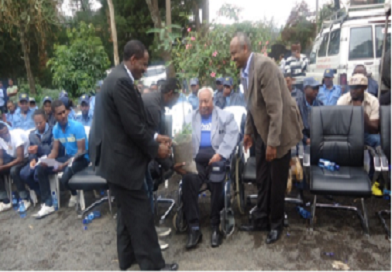Environmental Protection
There are now strong evidences, which show that the earth’s climate is changing mainly as a result of the increasing concentration of greenhouse gases in the atmosphere that are emitted from various human activities. According to the recent Fourth Assessment Report of the Intergovernmental Panel on Climate Change (IPCC), warming of the climate system is unequivocal, as is now evident from observations of increases in global average air and ocean temperatures, widespread melting of snow and ice, and rising global average sea level. IPCC has also concluded that more climate change is on the way resulting from past, current, and future greenhouse gas emissions with its potential adverse impacts on socio-economic development of nations. Developing countries in general and least developed countries like Ethiopia in particular are more vulnerable to the adverse impacts of climate variability and change. This is due to their low adaptive capacity and high sensitivity of their socio-economic systems to climate variability and change.
MIS Ethiopia is currently working on climate variability which is already imposing a significant challenge to Ethiopia by affecting food security, water and energy supply, poverty reduction and sustainable development efforts, as well as by causing natural resource degradation and natural disasters. In this regard we are aligning and harmonizing our projects and efforts with the government on Community Led Action for Integrated watershed management and environmental protection. MIS Ethiopia is conducting different environmental and socioeconomic assessments to design resilience and coping strategies in its intervention areas. As a strategic focus we are working on awareness creation and knowledge building of communities to protect and rehabilitate their environments and to make them benefited from the results achieved. Irrigation, planting of indigenous trees & fruits, implementation of water harvesting techniques, integrated water & soil conservation activities as well as Water Resources Development are among the major focuses on environmental protection. As an integration and value chain development this component is cross sectional with other thematic areas and needs involvement of multiple actors at different levels.
In urban settlements we are implementing urban agriculture and nutritional gardens for HIV/AIDS affected women, orphans and vulnerable children in urban areas to improve food self sufficiency and increase house-hold vegetable consumption and income. The modern beekeeping project is also one the urban agriculture projects implemented with the objective of enhancing the financial source and realizing food self-sufficiency among destitute mothers. On the other hand communities plant trees in their areas to get more honey and contribute to the environmental protection.


